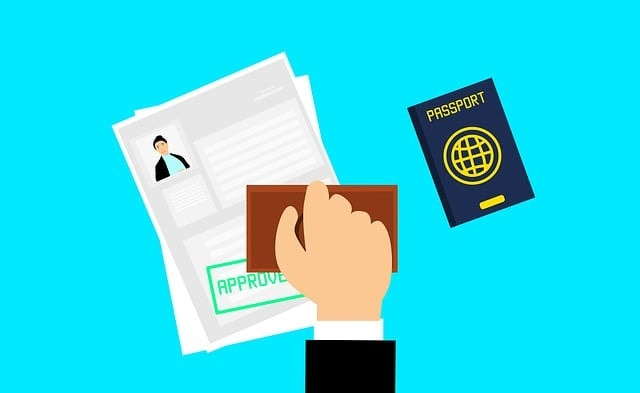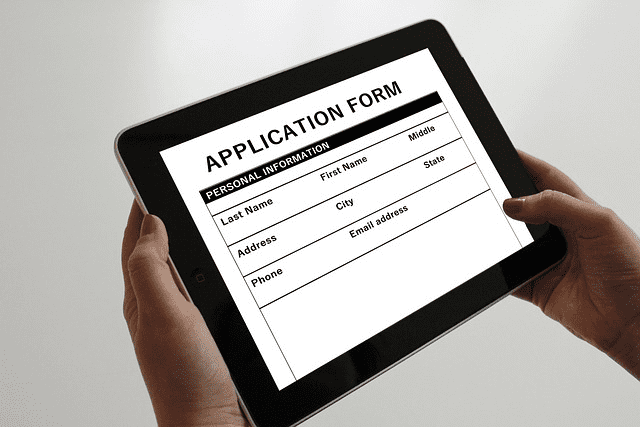A residence permit is an official document granting permission to stay in a country for a specified period of time. In the Netherlands, it is mandatory for non-EU citizens planning to reside for more than 90 days.
This document validates your legal status and allows you to access essential services like healthcare and employment. There are three primary types of residence permits – short-term, long-term, and temporary. Your country of residence and the reason for your move to the Netherlands—family, education, employment, or other—will determine the type of application you need to submit.
This article will delve deeper into the types of residence permits, eligibility requirements, application procedures, and the rights and obligations associated with each.
Who Needs to Obtain a Holland Residence Permit?

To be eligible for a Netherlands residence permit, individuals generally need to fulfil several criteria. These typically include possessing a valid passport, having sufficient financial means to support oneself, and holding comprehensive health insurance.
Additionally, applicants must demonstrate that they pose no threat to public order or national security. The specific requirements can vary based on the type of residence permit sought, such as employment, study, or family reunification.
Also, the eligibility criteria for a Dutch residence permit differ significantly between a citizen coming from an EU country, a non-EU country, and a UK citizen post-Brexit.
EU/EFTA Nationals in the Netherlands

EU/EFTA citizens enjoy the freedom to live, work, or study in the Netherlands without a visa. A valid passport or national ID card is sufficient. While registration with the Dutch Immigration and Naturalisation Service (IND) isn’t mandatory for most EU/EFTA citizens, it’s essential for those bringing non-EU/EFTA family members.
If they plan on staying longer than three months, EU/EFTA citizens must register with their local municipality. This process grants them a Citizen Service Number (BSN), crucial for various administrative tasks like opening a bank account or accessing healthcare. Besides, they must prove sufficient financial means and adequate health insurance coverage.
Non-EU/EFTA Nationals in the Netherlands
Non-EU/EFTA citizens generally require a visa to enter and stay in the Netherlands, this might vary depending on the country of your origin. Short-term stays (up to 90 days) might not necessitate a visa for certain nationalities (e.g., US, Japan, Australia), but this varies by country.
For stays longer than three months, a Dutch visa and/or residence permit aligned with the purpose of the visit are typically required. Employment often necessitates a work permit.
Family Members of EU/EFTA Nationals
Spouses, partners, children (under 21), and other financially dependent relatives of EU/EFTA citizens can also live and work in the Netherlands without a visa. However, obtaining a certificate of lawful residence through a verification process is mandatory to enjoy rights similar to those of EU nationals.
UK Citizens Post-Brexit
Since the UK left the EU in 2021, its citizens no longer benefit from free movement within the EU. While short-term visits (up to 90 days) to the Netherlands are visa-free, stays exceeding three months require a Dutch residence permit. Employment might also necessitate a work permit.
What’s the Difference Between a Work Permit and a Residence permit?
While the terms are often used interchangeably, there’s a distinct difference between a work permit and a residence permit in the Netherlands.
Work Permit
- Purpose – Specifically authorises a foreign national to engage in employment within the Netherlands.
- Scope – Limited to employment-related activities.
- Standalone or Included – Can be a standalone document or part of a residence permit.
Residence Permit
- Purpose – Grants permission to live in the Netherlands for a specified period.
- Scope – Covers a broader range of activities beyond employment, including study, family reunification, etc.
- Work Authorization – May or may not include work authorization.
Not every type of Dutch residence permit allows work. For instance, a Dutch residence permit for students or family reunification does not automatically grant you work permission. Work permits often require a residence permit. To work legally in the Netherlands, you usually need both a work permit and a residence permit.
In essence, a work permit focuses solely on employment, while a residence permit is a more comprehensive document that allows you to reside in the country. The specific requirements and procedures can vary depending on your nationality and the reason for your stay.
Types of Residence Permit in the Netherlands
In the Netherlands, there are three primary types of residence permits: short-term, long-term, and temporary. These are based on the duration of the stay and the purpose of the residence. Work visas fall under these categories based on the specific job and qualifications.
You can get the following types of visas for the Netherlands:
- Short-stay visas – Good for ninety days (or up to ninety days in a 180-day period)
- Temporary stay visas – Typically good for a year under certain conditions
- Long-stay visas – These are valid for stays longer than a year and are used for things like employment or visiting family.
Short-Stay Permits in the Netherlands
Short-stay visas allow you to visit the Netherlands for up to 90 days within a 180-day period. The most common type is the Schengen C visa, which permits travel within the entire Schengen Area.
If you plan to leave and re-enter the Netherlands multiple times within the 180-day period, you’ll need a multi-entry Schengen visa. A single-entry visa only allows one entry. You can usually convert a single-entry visa to a multi-entry visa for a fee of €30.
To apply for a short-stay visa, you must submit your application at a Dutch embassy or consulate in your home country before your planned trip.
There are three primary types of short-stay visas:
- Tourist visa – For holidays and visiting family or friends.
- Business visa – For business-related activities like meetings, conferences, or training.
- Airport transit visa – For layovers within the airport transit area.
Holiday and Family Visit Visa (Schengen C visa)
To visit the Netherlands for tourism or to visit family or friends, you’ll need a Schengen C visa. This short-stay visa allows you to stay in the Netherlands for up to 90 days within a 180-day period.
You must apply for your Schengen visa at the Dutch embassy or consulate in your home country. It’s recommended to apply at least six weeks before your planned trip. Required documents:
- Completed visa application form
- Valid passport or travel document
- Two recent passport photos
- Proof of travel health insurance covering the entire duration of your stay
- Confirmed travel itinerary (flight or other transportation bookings)
- Accommodation details (hotel reservation or invitation from host)
- Financial means to support yourself during your stay (bank statements or proof of sponsorship)
- Evidence of ties to your home country (e.g., employment contract, property ownership)
The visa application process typically takes up to 15 days. If approved, you’ll collect your visa from the embassy or consulate. A tourist visa does not permit employment in the Netherlands.
Business Visit Visa (Schengen C visa)
A business visa is a type of Schengen C visa specifically for individuals travelling to the Netherlands for business purposes. While similar to tourist visas in terms of application process and requirements, the focus is on the reason for your visit.
Common business activities that qualify for a business visa include attending conferences, seminars, or trade fairs. Conducting business meetings or negotiations or participating in training programmes or workshops.
To apply for a business visa, you’ll typically need:
- Valid passport
- A letter of invitation from a Dutch company or organisation
- Proof of your business affiliation (e.g., employment contract, business registration)
- Detailed itinerary of your business activities
- Other requirements are similar to those for tourist visas, such as proof of financial means, travel insurance, and accommodation.
Airport Transit Visa (Schengen A visa)
If you’re only transiting through a Dutch airport on your way to another non-Schengen country and need to spend the night, you’ll require an airport transit visa (Schengen A visa). This visa allows you to stay within the airport’s international transit area.
If you plan to leave the airport, even for a short period, you’ll need a short-stay Schengen C visa instead.
Temporary Residence Permits in the Netherlands
Temporary residence permits are for stays in the Netherlands, typically ranging from three months to a year. These permits allow you to live, work, or study in the country for a specific purpose.
Provisional Residence Permit (MVV)
If you need a visa to enter the Netherlands, you’ll require a Provisional Residence Permit (MVV). This is valid for up to 90 days and allows you to enter the country to apply for your actual residence permit. You can apply for both the MVV and residence permit simultaneously
Typically, you apply for an MVV and residence permit at the Dutch embassy or consulate in your home country. In some cases, a sponsor (employer or educational institution) can apply on your behalf.
General requirements for temporary residence permits include:
- Valid passport or ID
- Proof of good conduct (criminal record check)
- Financial means to support yourself
- You may also need to pass a civic integration exam to demonstrate your knowledge of Dutch language and society.
Types of Temporary Residence Permits
- Cultural Exchange Visa – For young people (18-30) to experience Dutch culture through volunteering or working as an au pair. Requires a sponsoring organisation.
- Work Experience Visa – For trainees or apprentices to gain work experience in the Netherlands. Requires a sponsoring organisation.
- Orientation Year Visa – For highly skilled graduates to look for work or start a business.
Long-Stay Residence Permits in the Netherlands
Long-stay visas are for individuals planning to reside in the Netherlands for more than 90 days. These visas function as residence permits, allowing you to enter and exit the country multiple times throughout their validity period.
Work Visas
To work in the Netherlands for over three months, you typically need a Combined Residence and Work Permit (GVVA). This document combines a residence permit and a work permit (TWV).
Obtaining a work visa is a process that includes a few steps. Usually, you need a job offer from a Dutch employer before applying. Your employer often handles the application process, submitting it to the Immigration and Naturalisation Service (IND). After arriving in the Netherlands, you’ll collect your GVVA from the IND.
Types of work permits:
- General work permit (GVVA) – For most employment types.
- Highly skilled migrant permit – For professionals with specific qualifications.
- Intra-corporate transfer permit – For employees transferring from a foreign branch of a multinational company.
- Researcher permit – For researchers employed by Dutch institutions.
- Self-employed and Enterprenuer permit
- European Blue Card – For highly skilled professionals from outside the EU.
Study Visas
If your studies in the Netherlands will last longer than three months, you’ll need a student residence permit.
Requirements:
- Acceptance letter from a Dutch educational institution
- Proof of financial means to support yourself
- Your educational institution usually handles the application process.
Family Reunification
The Netherlands allows family reunification permits for certain relatives of Dutch citizens or long-term residents. This typically involves a residence permit for the family member joining you. Requirements and procedures vary based on your specific circumstances.
Family members of EU/EFTA nationals residing in the Netherlands are eligible for visa-free travel and the application of equal rights with EU nationals. Relatives who are not EU/EFTA citizens and who reside in the Netherlands may accompany them:
- Partner or spouse
- Children under the age of eighteen (including foster or adopted children)
If you are joining a non-EU/EFTA family member, you will need a Dutch residence permit; if you require a visa to enter the Netherlands, you will also need an MVV.
Asylum Seekers and Refugees in the Netherlands
Anyone can apply for asylum in the Netherlands, regardless of nationality or background. The application process is free of charge.
To be granted asylum, you typically need to demonstrate a well-founded fear of persecution or harm in your home country due to factors such as race, religion, nationality, political opinion, or membership in a particular social group.
The asylum procedure involves:
- A medical examination, including a tuberculosis test.
- A registration interview to gather basic information.
- Accommodation in an asylum seeker’s’ centre while your application is processed. This usually takes several weeks or months.
- Interviews with immigration authorities to gather more details about your situation.
After careful consideration, the Dutch Immigration and Naturalisation Service (IND) will decide whether to grant you asylum.
If granted asylum, you’ll receive a temporary residence permit valid for five years. This allows you to work, access healthcare, and bring family members to the Netherlands. If rejected, you must leave the Netherlands within a specified timeframe. However, you can appeal the decision. If you do not oblige you are in risk of deportation.
Asylum recipients are expected to participate in integration programmes to learn Dutch, understand Dutch society, and find employment. After five years of continuous legal residence, you may be eligible for a permanent residence permit.
Eventually, after meeting specific requirements, including sufficient Dutch language skills and integration, you may be able to apply for Dutch citizenship.
Extending Your Stay and Obtaining Citizenship in the Netherlands
To continue living in the Netherlands beyond the initial permit period, you typically need to apply for an extension. Most residence permits can be extended for up to five years.
Key points for renewal:
- Timely application – Submit your extension request to the Immigration and Naturalisation Service (IND) at least three months before your current permit expires.
- Changing circumstances – If your reason for staying in the Netherlands changes (e.g., job loss), you might need to apply for a different type of permit.
After living in the Netherlands legally for five consecutive years, you may be eligible for a permanent residence permit. This permit offers greater security and stability.
Requirements typically include:
- Sufficient proficiency in the Dutch language
- Eough financial resources and being financially indeendant
- No criminal record
- Becoming a Dutch Citizen
If you hold a permanent residence permit and meet specific integration requirements, you may apply for Dutch citizenship after five years of residency. The waiting period is reduced to three years if you’re married to or in a registered partnership with a Dutch citizen.
Conditions for Obtaining a Residence Permit
The specific documentation needed to apply for a residence permit in the Netherlands can vary depending on the permit type. However, there are several common requirements. These documents must typically be submitted in Dutch, English, French, or German.
Essential documents often include:
- A valid passport or travel identification document.
- Proof of your current residence permit (if applicable) or evidence of meeting the required residency period in the Netherlands.
- Financial documentation, such as bank statements or employment contracts, to demonstrate sufficient income (unless you’re an EU/EFTA citizen or family member).
- Proof of successful civic integration, if required.
- A clean criminal record certificate (VOG).
In certain cases, additional documents may be necessary. For example, if you’re applying for a residence permit before reaching the standard five-year residency period, you might need to provide specific evidence, such as proof of retirement for EU/EFTA citizens.
It’s crucial to submit your application at least three months before your current permit expires. The IND will process your application within six months (or 90 days for EU/EFTA citizens). Once approved, you’ll need to collect your new permit promptly.
How do you Apply for a Holland Residence Permit in the Netherlands?

To obtain any type of Dutch residence permit, you typically apply at the Dutch embassy or consulate in your home country. However, for certain permit categories, you may be able to apply directly in the Netherlands.
The application process involves gathering the necessary documents, completing forms, and submitting your application. If you’re from outside the European Economic Area (EEA) and Switzerland, you might need a provisional residence permit (MVV) before entering the Netherlands.
To qualify for a residence permit, you typically need to have lived in the Netherlands legally and continuously for at least five years with a valid residence permit. However, there are exceptions and additional requirements.
Eligibility criteria:
- Legal residence – You must have lived in the Netherlands for at least five consecutive years with a valid residence permit if you want to apply for permanent residence permit.
- Sufficient income – You should be able to support yourself financially.
- Civic integration – You usually need a civic integration diploma, unless you meet certain exceptions.
- Clean criminal record (VOG)
Application Process
The process of applying for a residence permit can vary depending on the country and the specific type of permit you’re seeking. Here is the step by step guide when it comes to applying for Holland residence permit.
Step 1: Check eligibility
Ensure you meet all the requirements. These include:
- Job offer or proof of employment – For work-related permits.
- Acceptance letter from an educational institution – For student permits.
- Family relationship proof – For family reunification permits.
- Language proficiency – In some cases, proof of Dutch language skills might be required.
However, if you are applying from outside of Holland, you need an MVV.
The first step is to determine if you require an MVV (Entry Visa) before applying for a residence permit. This depends on your nationality. If you need an MVV, you can apply for both the MVV and residence permit simultaneously through the Entry and Residence Procedure (TEV).
A civic integration exam might be required as well. Before receiving an MVV, you need to pass a civic integration exam. This three-part exam measures your proficiency in both the Dutch language and Dutch society. Adults between age 18-65 have to enter the exam except:
- Turkish citizens
- If they are requesting a residency permit for adoption, paid work, au pair work, study abroad, medical care, or to be treated as independent individuals in accordance with an international treaty.
- if they meet certain requirements, such as a university degree or proficiency in the Dutch language.
The exam is taken at a Dutch embassy/consulate you are applying from.
Step 2: Gather documents
The specific documents required for a Netherlands residence permit can vary depending on the type of permit you’re applying for (work, study, family reunification, etc.). The following is a general list of documents you might need:
- passport,
- residence permit application,
- Health insurance,
- proof of income,
- civic integration diploma (if applicable).
Step 3: Submit application
You can apply online or by mail. The application form can be found on the IND (Immigration and Naturalisation Service) website.
The location for submitting your residence permit application depends on whether you need an MVV (Entry Visa) and your current location:
- If you need an MVV – You or your sponsor should submit the application at the Dutch embassy or consulate in your home country or country of residence.
- If you don’t need an MVV – You can apply at the Immigration and Naturalization Service (IND) in the Netherlands.
Step 4: Biometric data
Biometric data is increasingly becoming a standard requirement for residence permits in many countries, including the Netherlands. This information helps to verify your identity and prevent fraud.
Typically, biometric data includes:
- Digital photograph – A standardised picture of your face.
- Fingerprints – Scans of your fingerprints.
Step 5: Pay the fee
The fee for a residence permit varies depending on the type of permit, and the applicant’s circumstances.
Common payment methods:
- Cash – In some cases, you may be able to pay the fee in cash directly at the embassy or consulate.
- Bank transfer – Many countries allow you to pay the fee through a bank transfer to a designated account.
- Credit or debit card – Some embassies or consulates accept card payments.
- Postal order – In certain cases, you might be able to pay by postal order.
Important considerations:
- Proof of payment – Always retain proof of payment, such as a bank receipt or transaction confirmation.
- Exact amount – Ensure you pay the exact fee amount to avoid delays.
- Currency – Pay in the required currency as specified by the immigration authorities.
Step 6: Wait for decision
In the Netherlands, the length of time it takes to process an application for a residence permit can vary greatly. It can vary depending on a number of factors, including the kind of permit, the season, and the intricacy of your application.
General processing times:
- Standard processing time – For the majority of residence permit applications, the Immigration and Naturalisation Service (IND) requires a legal decision within six months.
- EU/EEA nationals – Generally, the decision-making period is 90 days or less for EU/EEA nationals and their family members.
Final Thoughts
Obtaining a residence permit in the Netherlands requires careful planning and preparation. Key factors include determining the specific permit type based on your reason for staying, gathering essential documents, and meeting financial and potentially language requirements.
The application process can be complex, with varying timelines and procedures. If you’re unsure about any aspect of the process, seeking guidance from an immigration lawyer or professional advisor is highly recommended.
Ready to start your new adventure in the Netherlands? Explore exciting job opportunities on Robin and take the first step towards your Dutch dream!

 English
English  Lietuvių
Lietuvių  Latviešu
Latviešu  Polski
Polski  Português
Português  Română
Română  Slovenčina
Slovenčina  Magyar
Magyar  Русский
Русский  Espanol
Espanol  България
България  Čeština
Čeština  Italy
Italy  Croatia
Croatia  Greek
Greek 

